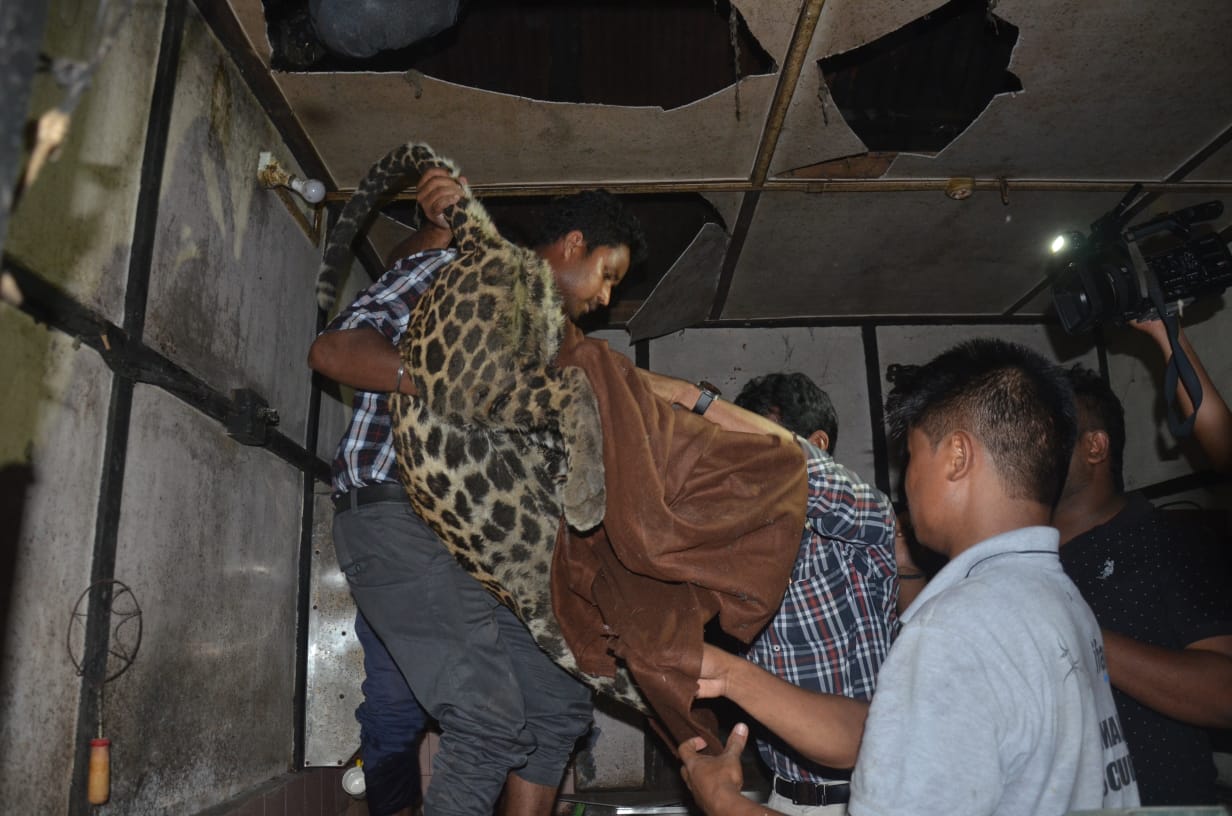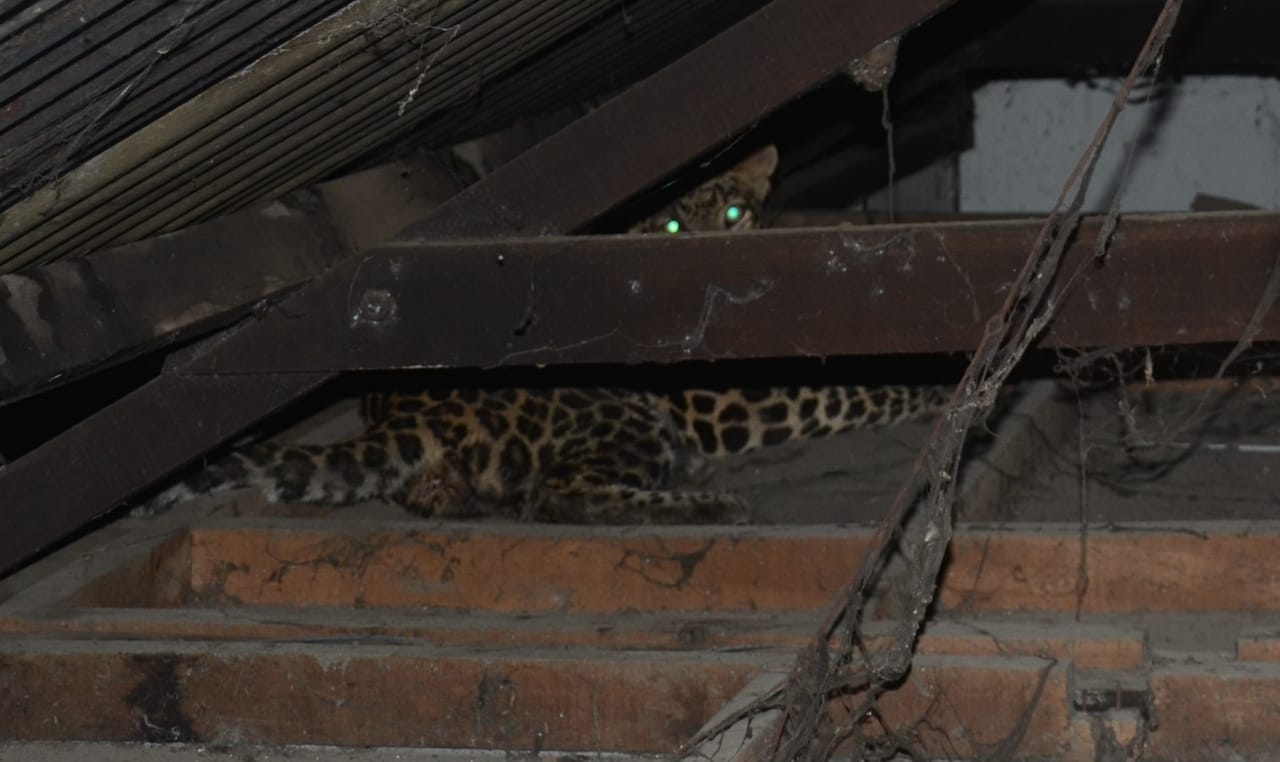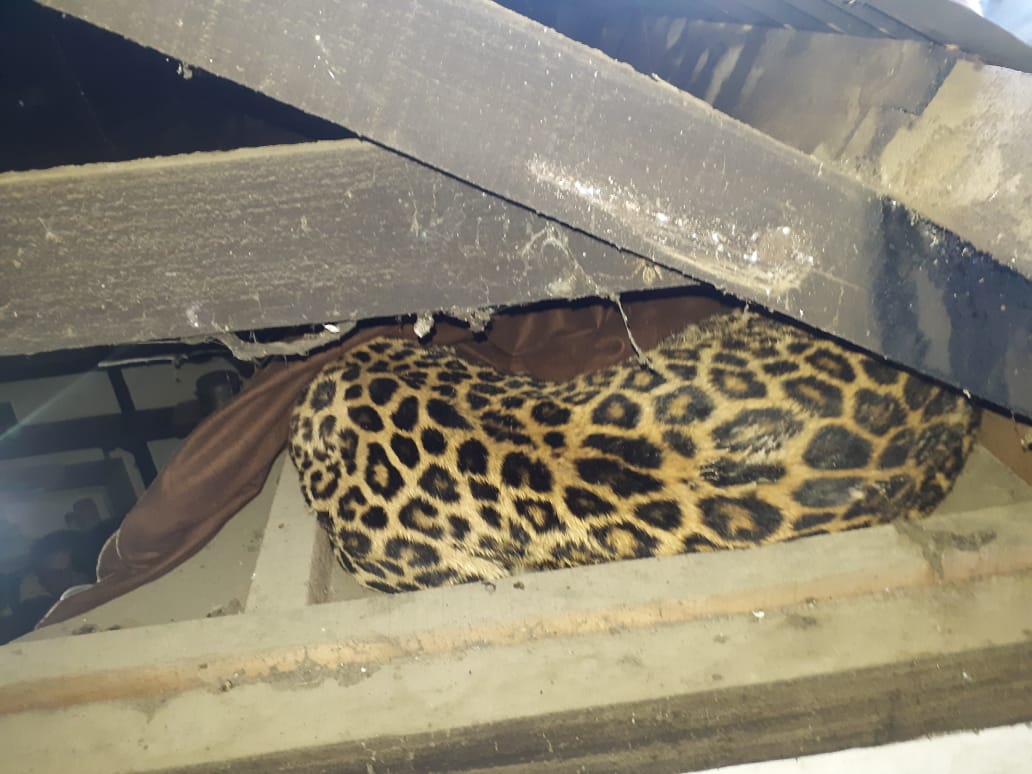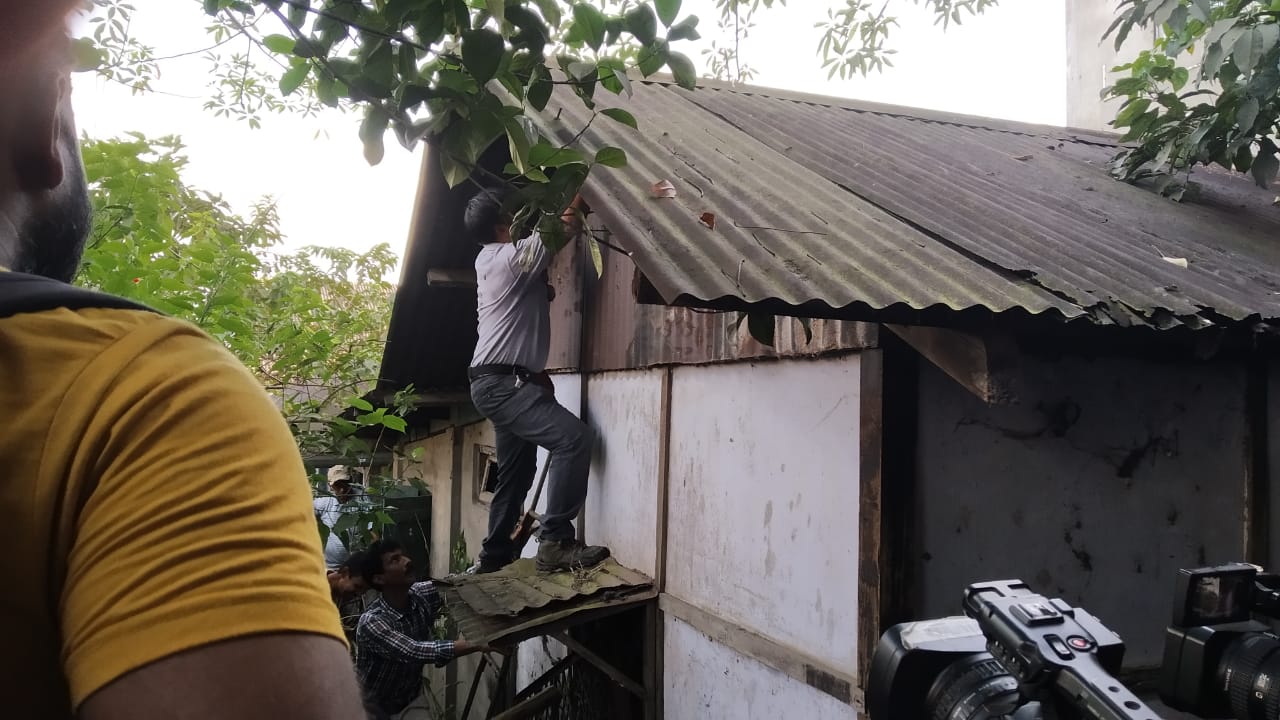Dibrugarh, August 22, 2019: A very difficult rescue operation was conducted successfully by our team of veterinarian, biologist and animal keeper when a leopard was released back to the wild after being tranquilised and removed safely from a house surrounded by a large mob.
The sighting of a leopard sitting under a truck in the busy locality of Paach Ali in Dibrugarh on August 22 created a furore. A mob assembled within no time as the carpenter who tried to ward off the leopard was injured by the retaliating animal. Panic stricken residents called for help while the scared leopard took refuge in one of the houses that was flooded after a heavy downpour.




The WTI team comprising veterinarian Dr. Khanin Changmai; biologist Aftab Ahmed, and animal keeper Raju Teron attended to the case along with a forest official from the Guijan WL range. The Mobile Veterinary Service Unit that we run in Eastern Assam is supported by IFAW and HCL Foundation. The unrest amongst the crowd was brewing by the time the team reached the location. The animal had climbed close to the roofing beams as the floor of the house was flooded with rain and drain water and the veterinarian had to clamber to a precarious vantage point to tranquilise the animal.
The leopard, found to be a healthy male, was then carried into the waiting rescue vehicle parked 100 m away with the help of a local resident while local authorities kept the crowds at bay. The chaos amongst the locals made it very challenging for a detailed examination and hence the leopard had to be taken finally taken to the local police station to enable it to recover from the effects of the sedative.
After a detailed discussion with the local DFO Prabhakar Das, the animal was released at Dihing Patkai Wildlife sanctuary that night. The release took place in the presence of Deputy Ranger Md. Iftikar Alom, Dibrugarh Forest Range, Forester Shantanu Phukan, Guijan Wildlife Range and Jitu Hazarika, Assam Forest Protection force Dibrugarh.
The area where the MVS unit operates is one of the hotspots for such leopard encounters which often stir up human-wildlife conflict. Since its inception in 2003, the MVS unit has assisted the local forest department in safely handling over 80 cases of human-leopard conflict and ensured more than 50% of these are released back into the wild. Unfortunately, a few animals, as found to be unfit for a life in the wild, had to be sent to the zoo for lifetime care.